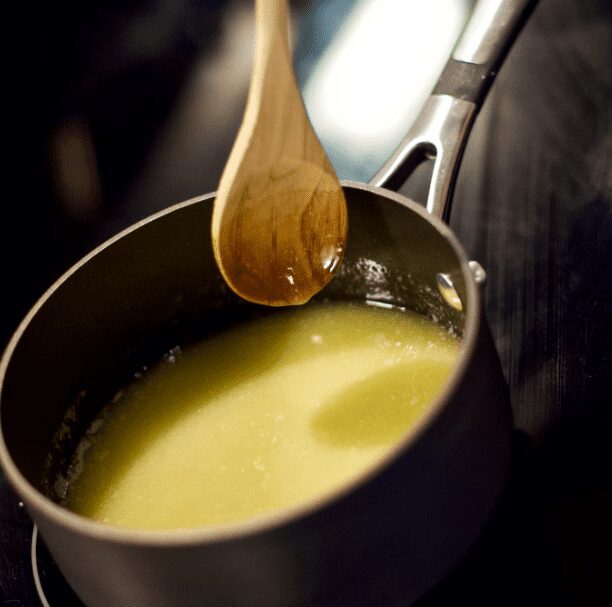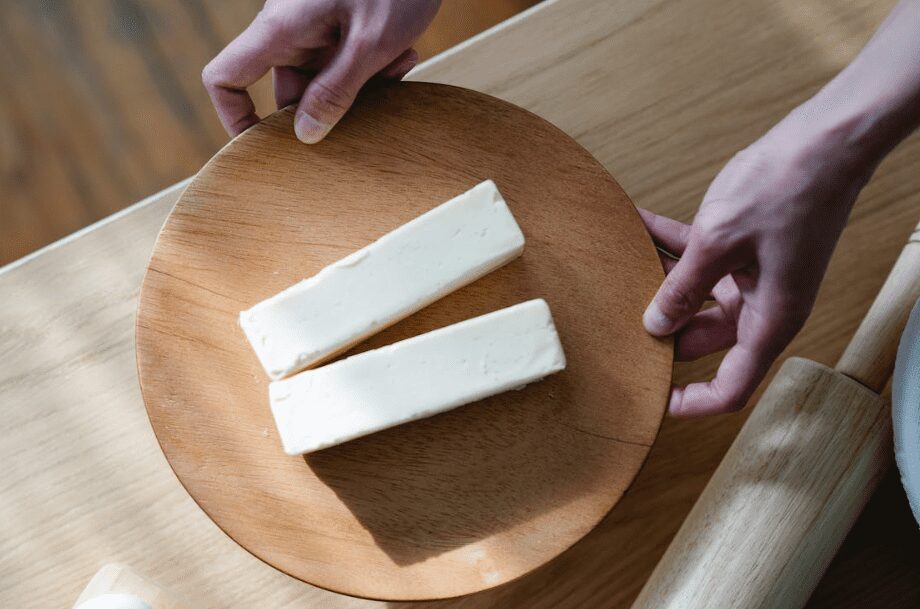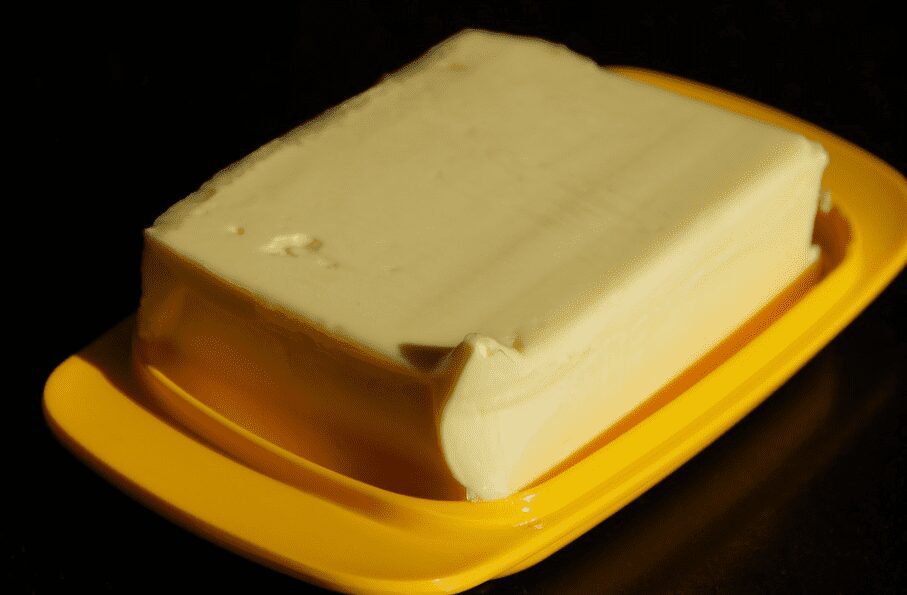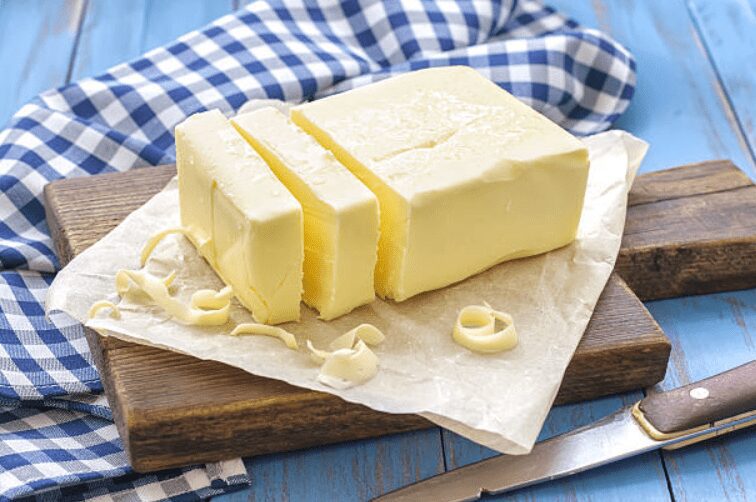Eating butter in moderation can help reduce the risk of diabetes, obesity, and heart problems. Butter is high in calories and saturated fat, so it should be consumed in moderation as part of a balanced diet. Eating a variety of healthy fats such as avocado, olive oil, seeds, nuts, and fatty fish is recommended for a healthy lifestyle.
Freezing butter can help you enjoy its flavor without worrying about spoilage or going through large amounts quickly.
What To Do With Leftover Melted Butter?

Butter is an essential ingredient in many recipes, and it’s no wonder why. Not only does it add a delicious flavor to dishes, but it also has a long shelf life. It takes more than 20 pints of milk to make just one pound of butter, making it a valuable commodity in society today.
When cooking with butter, many people prefer to melt the butter before adding it to their dish. This can be done on the stovetop or in the microwave.
However, if you’re not following a strict recipe, you may have some leftover melted butter after completing your meal. So what should you do with this extra butter? Here are five solutions for using up your leftover melted butter:
1) Add it to sauces or gravies for added richness and flavor.
2) Use it as a topping for popcorn.
3) Use it as a spread on toast or muffins.
4) Drizzle over vegetables before roasting.
5) Make compound butter by mixing herbs and spices for extra flavor.
Leftover melted butter can be a great ingredient to have on hand for many recipes. It is easy to store and can last pretty well in the refrigerator.
The melting process will cause the solids to separate, but this is actually one of the best things about butter: it can be melted and hardened up again in the refrigerator without undergoing any chemical changes.
This means that you don’t have to worry about discarding your leftover melted butter; instead, you can use it in other recipes or save it for another day.
There are many ways to use leftover melted butter. You could use melted butter as an alternative to oil when sautéing vegetables or making scrambled eggs. With all these options, there’s no need to let your leftover melted butter go to waste.
Can We Keep Melted Butter Liquid?

Yes, you can keep melted butter liquid. Clarified butter is a type of butter that has been heated and simmered until the milk solids separate from the fat. This process removes most of the water content, leaving behind a purer form of butterfat that is much closer to a liquid at room temperature than regular butter. It also has a longer shelf life than regular butter, so you can keep it on your counter for up to two months without it going bad.
Clarified butter is often used in cooking because it has a higher smoke point than regular butter, meaning it can be heated to higher temperatures before burning. It also has a more intense flavor than regular butter, making it ideal for sautéing vegetables or adding richness to sauces and soups.
Additionally, clarified butter does not need to be refrigerated and will remain liquid even when cooled down. This makes it an excellent choice for baking as well as for spreading on toast or other baked goods.
Can We Refrigerate Butter After Melting?
Absolutely, you can refrigerate butter after melting it. The butter will last as long as it usually does in the fridge, which is typically up to a month. However, when you melt the butter, the solids and liquids will separate.
This means that when you cool it down again, the texture of the butter may be different than before. It may not be as creamy or spreadable as it was before melting.
When storing melted butter in the refrigerator, make sure to store it in an airtight container or wrap it tightly with plastic wrap. This will help keep out any moisture and prevent bacteria from forming on the surface of the butter.
Additionally, if you plan to use melted butter for baking purposes, make sure to let it cool completely before adding other ingredients so that they don’t become contaminated with bacteria from the melted butter.
Can Melted Butter Be Frozen?

Yes, melted butter can be frozen. It is a great way to store butter for longer periods of time, as it can last in the freezer for up to three months.
When freezing butter, it is important to keep it away from any contaminants and keep it as cool as possible. This will help preserve the quality of the butter and prevent any bacteria or other contaminants from entering the butter.
When thawing out your melted butter, make sure that you do not refreeze it again. If you need to freeze your melted butter again, be sure to handle it with care and keep it away from any contaminants.
What Happens When You Cool Melted Butter?
When melted butter is cooled, it will solidify and become a semi-solid state. This process is known as “setting” and is the same process used to make butter from cream. When cooled, the fat molecules in the butter form a network of crystals that give it its solid texture. The longer you cool melted butter, the firmer it will become.
Once melted butter has been cooled and set, it can be used for cooking or baking just like regular butter. It can also be stored in an airtight container in the refrigerator for later use.
If you plan on using your melted butter at a later date, you can also freeze it for up to six months without any significant loss of quality or flavor. Frozen melted butter should be thawed before use and should not be re-frozen after thawing.
Can You Reheat The Butter Twice?

When it comes to reheating butter, the answer is yes, you can reheat it multiple times. However, it is important to note that the best practice is to limit the number of times you do so.
This is because repeated reheating can cause the butter to break down and lose its flavor and texture. Additionally, if not done properly, reheating butter can lead to bacterial growth which could be dangerous for your health.
It is also important to remember that more often than not, you wouldn’t need to reheat one type of dish more than once. If you are looking for a way to save time and energy in the kitchen, consider making larger batches of food so that there are leftovers available for later meals. This way, you won’t have to worry about repeatedly reheating butter or other ingredients.
Does Freezing Butter Change The Taste?
Freezing butter is a great way to prolong its shelf life and preserve its taste and texture. Butter should be stored in its original packaging and wrapped with aluminum foil or put in a freezer-safe container for optimal results.
Freezing does not change the taste or texture of butter, so it can be used just like fresh butter when thawed. Proper storage is key to preserving the taste and texture of frozen butter, so it’s important to make sure that it is properly sealed before freezing.
When you’re ready to use the frozen butter, let it thaw at room temperature before using it. You may notice some changes in texture as the butter thaws, but this should not affect the taste of the butter.
How Is Melted Butter Cooled Down?
Cooling melted butter can be a tricky process. If you don’t cool it down quickly enough, the butter will become too soft and won’t hold its shape when used in recipes. To quickly cool down partially melted butter, mix in a few ice cubes. After less than a minute of stirring, the butter had cooled to a softened stage right below 70 degrees.
The key to cooling melted butter is to do it as quickly as possible. Adding ice cubes directly into the melted butter helps speed up this process by lowering the temperature of the butter.
However, be sure not to add too many ice cubes or stir for too long as this could cause the butter to become too hard and difficult to work with. Once cooled, you can use your cooled melted butter for baking or other recipes that require softened or melted butter.
How Long Can Melted Butter Be Stored?
The key to keeping melted butter fresh and safe for consumption is to store it properly. Generally speaking, you can keep melted butter at room temperature for one to two days. However, if you want to be extra cautious and ensure the butter stays fresh, it’s best to store it in the refrigerator.
When storing melted butter in the refrigerator, make sure that it is kept in an airtight container or covered with plastic wrap. Additionally, make sure that you label your container with the date so that you know when it was made and how long it has been stored.
It’s also important to note that if you plan on using melted butter within a few days of making it, there’s no need to refrigerate it; just keep it at room temperature until ready for use.
Conclusion
Overall, melted butter is an incredibly versatile ingredient that can be used in many different ways. From adding flavor to roasts to making sauces or even just using it as a dip for seafood dishes – there are endless possibilities when it comes to using leftover melted butter.

